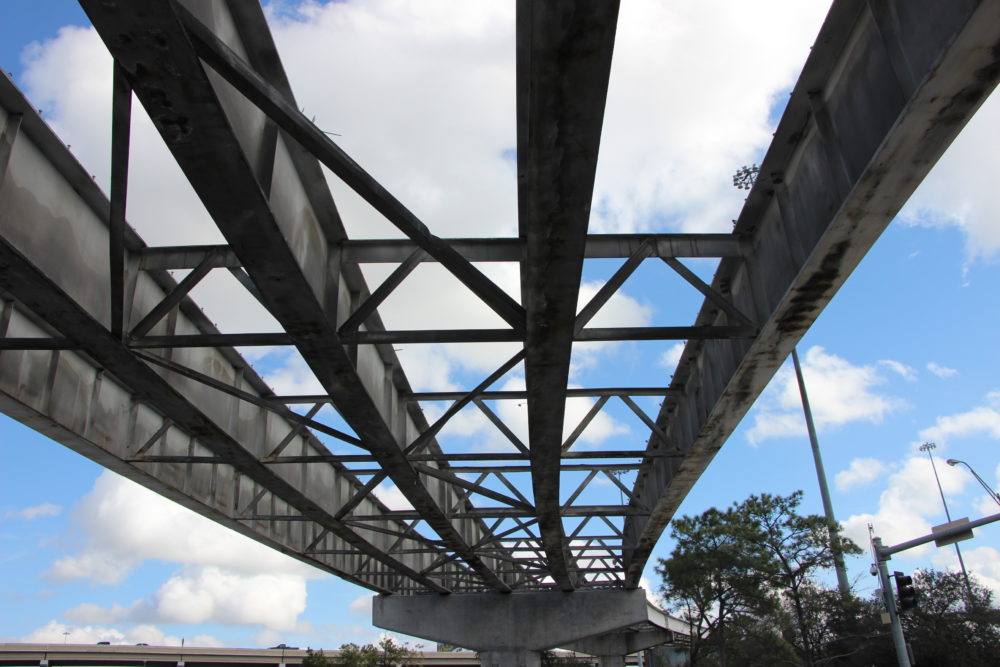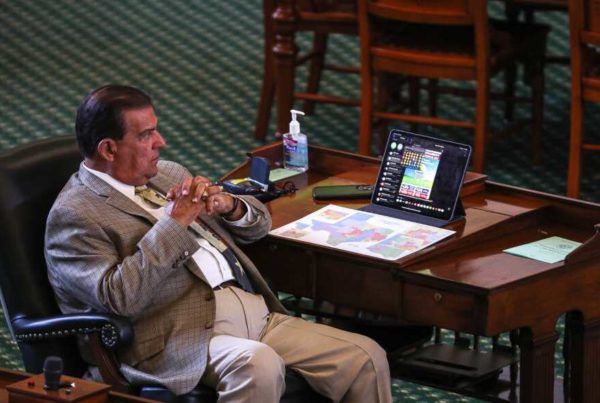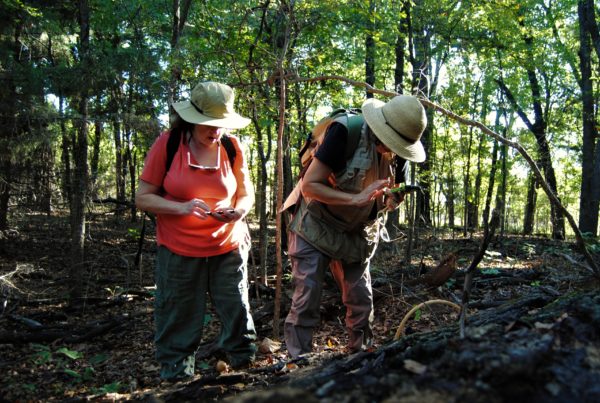President Biden is preparing to sign the $1.2 trillion infrastructure bill today. Some $35.44 billion of that will go to Texas.
But it’s unclear how much of that funding will wind up in the Houston area.
Democratic congressman Al Green said he has a long list of priorities for infrastructure spending, starting with transportation, which comprises the largest part of Texas’ grant.
“We’ve got more than 800 bridges and over 19,000 miles of highway that are in poor condition,” Green said. “Well, this legislation provides $26.9 billion for highway improvements and $537 million for bridge replacement and repairs.”
In an interview, Green laid out a range of issues impacting Greater Houston, including building out electric vehicle charging stations and eliminating lead and other toxins from drinking water.
Read a fact sheet on the bill released by the White House:
Now U.S. Rep. Sylvia Garcia, D-Houston, says she and others in the Houston congressional delegation will be on guard to prevent that from happening again.
“We’re going to make, quite frankly, damn sure that Houston gets its fair share, that the county gets its fair share, and that we make sure that we get the money where we intended to go, and that’s to the people,” Garcia said.
Garcia has her own priorities. As with Green, safe drinking water is a big concern. Other top concerns for Garcia include improving airports and the Port of Houston to deal with supply bottlenecks, and weatherizing the state’s electrical grid, which failed during February’s winter storm.
“Let’s not forget that 210 people died from that freeze,” Garcia said. “We cannot go through that again.”
Some projects are truly statewide, like improving broadband access. The infrastructure bill includes about $100 million for expanding broadband coverage across Texas. Much of that is likely to go to help connect up rural areas, but there’s also a need in denser urban area, according to Houston congresswoman Lizzie Fletcher.
“There are a lot of people, more than a million people across Texas, who currently lack broadband access, and people might assume that in the urban areas we have broadband access,” Fletcher said. “But in fact, the pandemic has showed us otherwise, that there are a lot of people here in our community who need that access.”
Like Garcia, Fletcher is concerned about extreme weather events, which can affect large swaths of the state at once. Fletcher said she’s pushing to make sure some of the funding goes to pay for flood resiliency and flood prevention projects.
She’s also the author of a provision of the infrastructure bill aimed at plugging every abandoned — or “orphan” — oil and gas well in the nation. There are roughly 81,000 orphan wells in the U.S., according to a recent study by the Environmental Defense Fund. Such wells can leak toxic chemicals into ground aquifers and methane into the air.
There are 6,489 such wells in Texas, including 167 in Chambers County alone.
Fletcher said the provision, known as the REGROW Act, will “create tens of thousands of jobs” in the energy sector for skilled oil and gas workers, on top of helping the environment.
That suggests that even projects that don’t physically sit within the Houston area could benefit the region indirectly.
One major project the infrastructure bill won’t pay for is to build the coastal storm barrier, popularly known as the “Ike Dike,” designed to protect the coast of southeast Texas – and the Houston area in particular – from the effects of a devastating storm surge. The final estimate from the Army Corps of Engineers, released in September, put the cost of that project at $29 billion, more than the infrastructure bill’s entire outlay for Texas highway construction and repair.
That will be a separate bill going through the congressional Transportation and Infrastructure Committee, according to Garcia.
“There’s a long line for those projects all over the country,” Garcia said. “All of us in the congressional delegation from Harris County are painfully aware of the need to do this and we all will work together to make sure we get the dollars. It’s a long term project, but we’ll get it done.”













